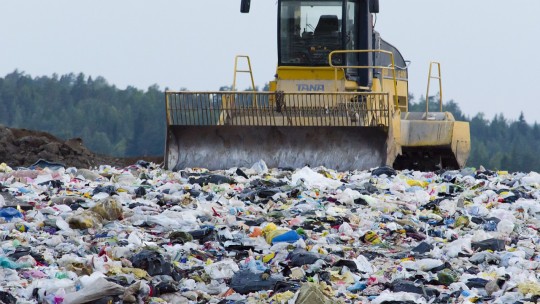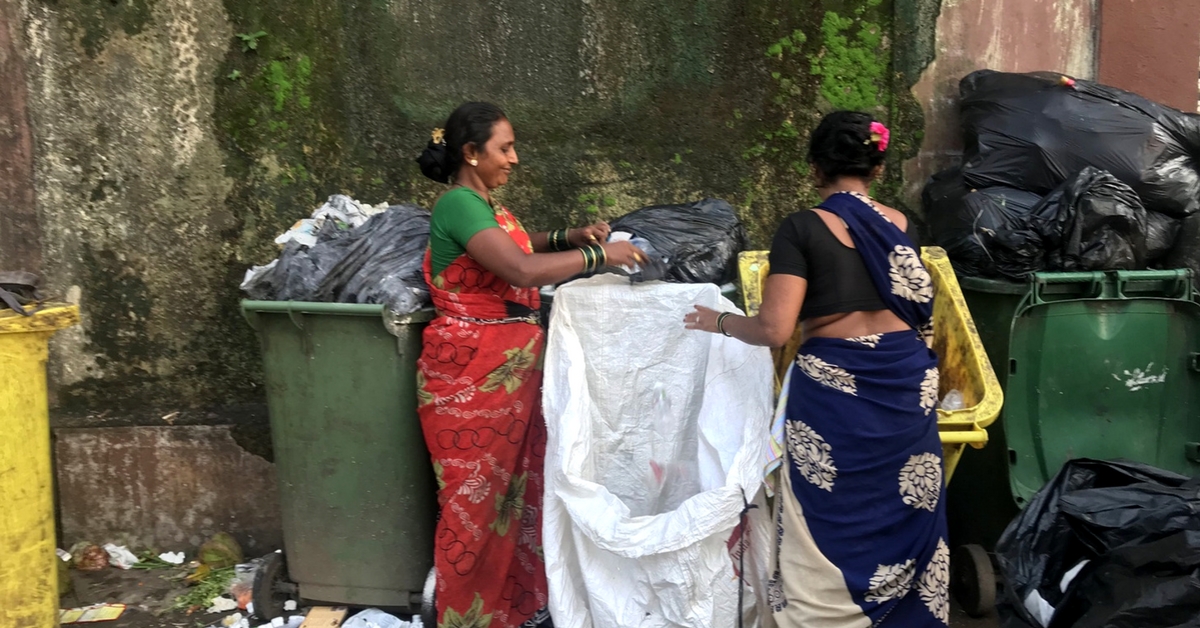The recent endeavour by the BMC to tackle the issue of garbage segregation has forced Mumbaikars to change their lifelong habits and apathy towards household waste. Large building societies now have to take on the task of educating their residents on concepts like waste segregation, composting, and recycling, as the BMC has ceased to collect waste from societies that have an area of 20,000 sq meters or more, or those that generate more than 100 kg of waste per day.
According to the Brihanmumbai Municipal Corporation (BMC)’s latest Environment Status Report (ESR), Mumbai is responsible for 9400 tonnes of trash being sent daily to the dumping grounds, so this decision has been a long time coming.
The good news is that if Mumbai does take this move towards a cleaner city seriously, we can reduce the amount of garbage transported to landfills by 93%

While much has been written on the impact the BMC’s waste management initiative can and has had so far, not much has been said about the impact of this initiative on the lives of the city’s garbage collectors. Today, we follow the trash trail and take a look at the lives of our waste warriors – the heroes that keep our city clean.
Also Read: Want to Have a Green and Clean Event? Here’s a Delhi Woman Who Can Make That Happen
28-year-old Anuj Kumar Valmiki is from Bilgaam village near Aligarh in Uttar Pradesh. Due to the lack of employment options apart from agriculture, and almost no family land to call their own, Anuj along with his four brothers and father came to Mumbai when he was 16 years old. Since then, Anuj has worked as a garbage collector in a Cuffe Parade building society that has 90 apartments. Each day, Anuj and 25-year-old Arjun Ramiel, (also from Uttar Pradesh) sweep the building common areas and collect garbage twice a day from each apartment for a salary of ₹ 6500 each.
Money is always tight, they say, but with no education or skills, garbage collection is a means to make money so they can provide for their wives and children in the village.
“Our work has increased now, with the building management and the government insisting the wet and dry garbage is segregated. Residents do segregate their waste now, but we still need to check each garbage bag. This is very time consuming and requires more effort, but we still get paid the same salary,” complains Arjun. It is difficult to make ends meet, but alternative job opportunities for the likes of Arjun and Anuj are scarce.
The waste is segregated by putting wet garbage in green containers and dry garbage in blue containers. At the edge of the building society that has six other buildings, where Arjun and Anuj dispose the garbage into separately marked containers. “Our work is menial, but somebody has to do it. At least we know we are making a difference – we are helping to keep our city clean,” Anuj says with a smile, as he finishes his work for the day.
42-year-old Kanta Waghmare sits amongst the garbage, picking and sorting through it slowly. Kanta is a BMC waste collector and has lived in Shivajinagar (near the Deonar dumping grounds, Mumbai’s oldest and largest landfill) all her life.
She works with the Stree Mukti Sangathan, an organisation that forms women’s groups and runs a program for waste pickers in collaboration with the BMC. The sangathan organises the waste pickers into waste cooperatives of 10-15 women and ensures that the women get daily employment as well as a reasonable price for the waste they collect, sort and sell.
Kanta Lahane from Aurangabad, who moved to Mumbai 15 years ago, seeking better prospects, joins her. Both Kanta’s are a part of the women’s waste cooperative and are assigned to a different part of the city ward or municipality each day. This way, each woman in the collective gets a chance to sort and collect garbage at each collection point.
The sangathan deals only in dry waste as it is recyclable and can be sold for the right price. The two women spend the day further segregating plastic from paper, tin from glass, cardboard from metal, putting them into separate trash bags so that it can be sold easily. A separate BMC truck collects the wet garbage that is then sent for composting.
“We spend the whole day sorting through other people’s garbage. It is a laborious task, but we have no other way of making money. We have families to feed. I don’t mind the work – I earn my living with honest labour, but this new rule of segregating garbage has increased our work,” says Kanta Lahane.
“The insects and smell don’t bother us anymore. Our bodies have gotten used to it. Sometimes we fall sick or get hurt with the broken glass pieces, and have to spend our hard earned money on medication and doctors,” says Kanta Waghmare who recently cut her foot on a piece of glass. It took her three weeks to recover from the injury, and four young boys to support, only one of which is old enough to earn, this was a huge setback for her.
At the end of the day, the sangathan’s van comes to collect the garbage bags and the two women, to take them to the closest dumping grounds at Badhwar Park. Each women’s cooperative has to pay ₹ 100 to the Sangathan to use the van to transport the trash bags to the dumping ground. The women of the cooperative share the expense.
At the dumping ground, this recyclable waste is further sorted and then weighed. The women sell the waste and are paid per kilogram of garbage, with each item priced differently. On a good day, they earn ₹ 500 per day, but on average their income is closer to ₹ 300-350 on a given day. Today, both women earn ₹ 400 each.
“The Government wants a Swachh Bharat. We have cleaned Mumbai for years, but we want their support. We have to sell the waste to earn from that and that gives us no stability. We wish they would think of giving us a fixed income,” says Kanta Lahane.
“What keeps us going are the blessings we receive from everyone. So many people come and tell us that we’re doing a good job – that makes us happy.”
A staggering 73% of garbage sent to dumping grounds in Mumbai comprises of wet waste such as food, vegetable and fruit waste, says the ESR report. The simple task of household waste segregation can lead to a monumental decrease in the amount of waste sent to garbage dumps, lessen the load on the waste pickers, keep our cities cleaner and the environment pollution free.
As our waste warriors, Anuj, Arjun, and the Kanta’s, labour to keep our city clean, we too can pitch in by educating those around us and taking small steps toward a cleaner and greener India.
(Written by Namrata Tanna)
Like this story? Or have something to share? Write to us: contact@thebetterindia.com, or connect with us on Facebook and Twitter.
NEW: Click here to get positive news on WhatsApp!
We bring stories straight from the heart of India, to inspire millions and create a wave of impact. Our positive movement is growing bigger everyday, and we would love for you to join it.
Please contribute whatever you can, every little penny helps our team in bringing you more stories that support dreams and spread hope.

